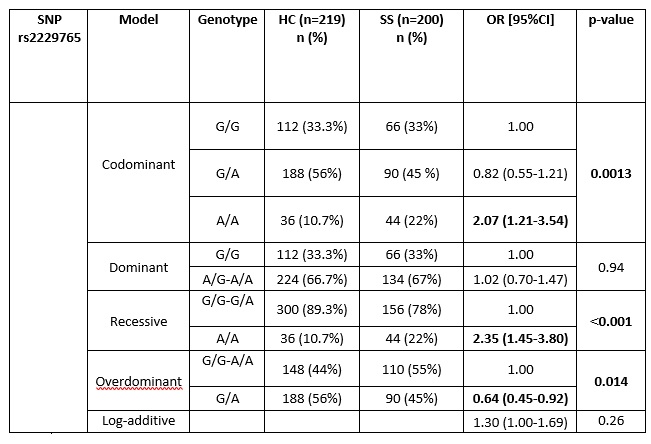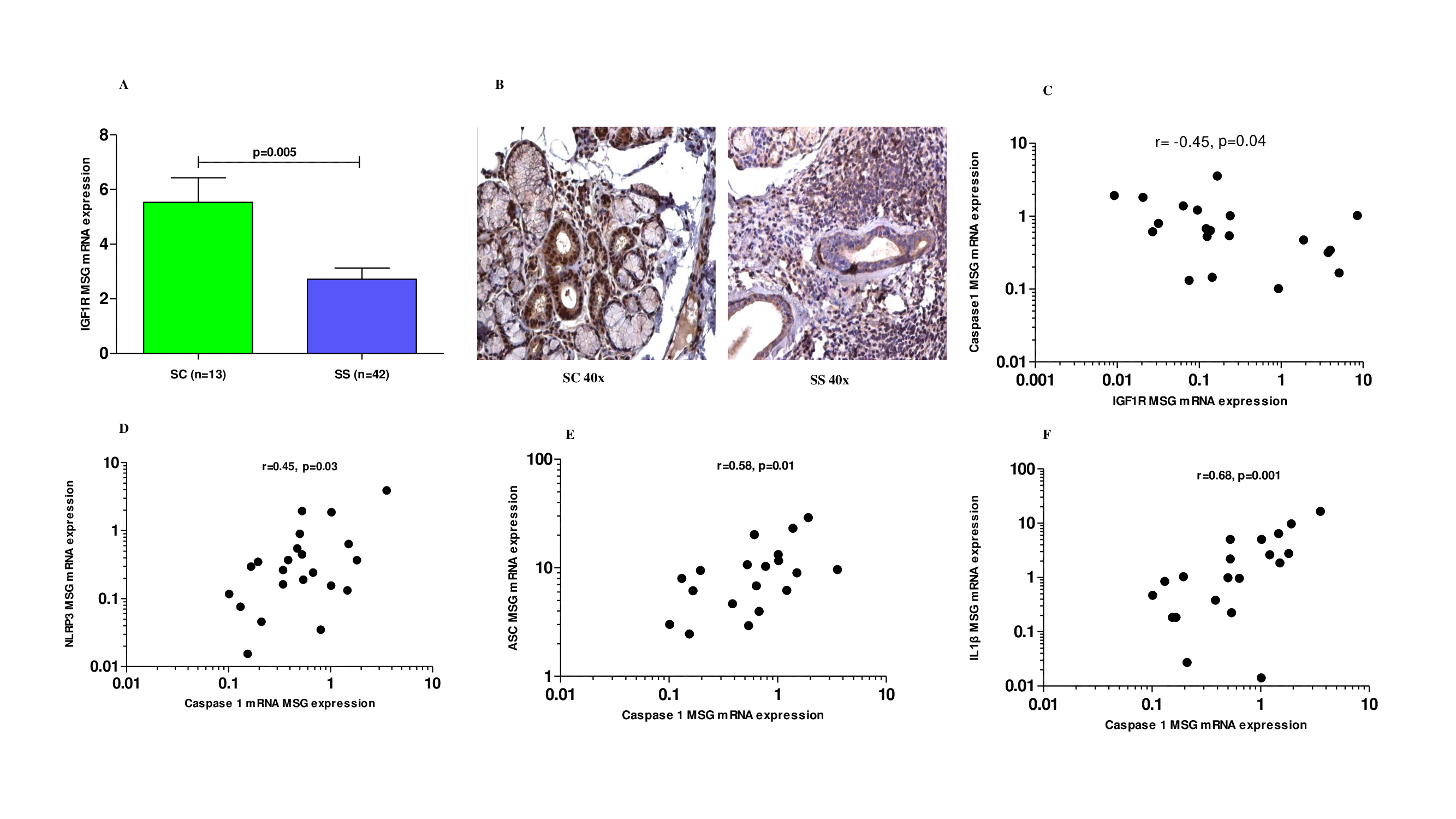Session Information
Session Type: Poster Session B
Session Time: 8:30AM-10:30AM
Background/Purpose: Sjӧgren’s syndrome (SS) is an autoimmune exocrinopathy characterized by chronic salivary and lacrimal gland dysfunction. Alterations of Insulin-like growth factor (IGF) pathway has been recently linked to the development of systemic autoimmune diseases possibly through induction of apoptotic pathways and genetic variants of the IGF1 receptor (IGF1R) gene, has been shown to increase systemic lupus erythematosus (SLE) susceptibility. The aim of this study was to investigate whether genetic variations of the IGF1R contribute to SS pathogenesis and inflammasome activation, previously shown to be a contributor in SS related lymphomagenesis.
Methods: DNA was extracted from whole peripheral blood derived from 200 SS patients fulfilling the 2016 ACR/EULAR criteria and 336 HC and genotyped for the rs2229765 IGF1R polymorphism by RFLP-PCR assay. To explore potential functional implications of the IGF1R rs2229765, total RNA was extracted from minor salivary glands biopsies (MSG) of 50 SS patients and 13 sicca controls (SC, presenting with ocular and /or oral dryness) and mRNA expression of IGF1R, as well as downstream inflammatory apoptotic mediators including caspases 1, 4, 5 and inflammasome components NLRP3, ASC, IL-1β, IL-18 was quantitated by RT-PCR. IGF1R immunohistochemical (IHC) expression was also assessed in formalin-fixed, paraffin-embedded MSG tissue sections derived from 5 SS patients and 5 SC. Statistical analysis was performed with GraphPad and SNPstats software. All subjects gave informed consent in accordance with the Declaration of Helsinki.
Results: Increased frequency of the AA genotype was detected in primary SS patients compared to HC (22% vs 10.7%, OR: 2.35 [1.45-3.80, 95% CI], p˂0.001) (Table 1). SS patients displayed reduced IGF1R at both mRNA and protein level in MSG tissues (mainly in ductal cells) compared to SC (mean±SD=2.97±2.62 vs mean±SD=5.53±3.23, p=0.009) (Figs 1 and 2). Of interest, IGF-1R expression was negatively associated with caspase-1 transcripts (r= -0.45, p=0.04), which in turn were positively correlated with NLRP3 (p=0.45, p=0.03), ASC (r=0.58, p=0.01) and IL1β (r=0.68, p=0.001).
Conclusion: In the present study, rs2229765 IGF1R variant has been shown to increase susceptibility for primary SS. Decreased trophic signals in salivary gland epithelial cells as a result of dampened IGF1R mRNA and protein expression in salivary gland tissues could be related to increased apoptosis and subsequently to activation of inflammasome pathways in the setting of primary SS.
To cite this abstract in AMA style:
Skarlis C, Nezos A, Marketos N, Papanikolaou A, Tzioufas A, Koutsilieris M, Moutsopoulos H, Mavragani C. Dysregulation of IGFI/IGF1R Pathway and IGF1R+3179A/G Polymorphism in Pathogenesis of Sjögren’s Syndrome [abstract]. Arthritis Rheumatol. 2021; 73 (suppl 9). https://acrabstracts.org/abstract/dysregulation-of-igfi-igf1r-pathway-and-igf1r3179a-g-polymorphism-in-pathogenesis-of-sjogrens-syndrome/. Accessed .« Back to ACR Convergence 2021
ACR Meeting Abstracts - https://acrabstracts.org/abstract/dysregulation-of-igfi-igf1r-pathway-and-igf1r3179a-g-polymorphism-in-pathogenesis-of-sjogrens-syndrome/


